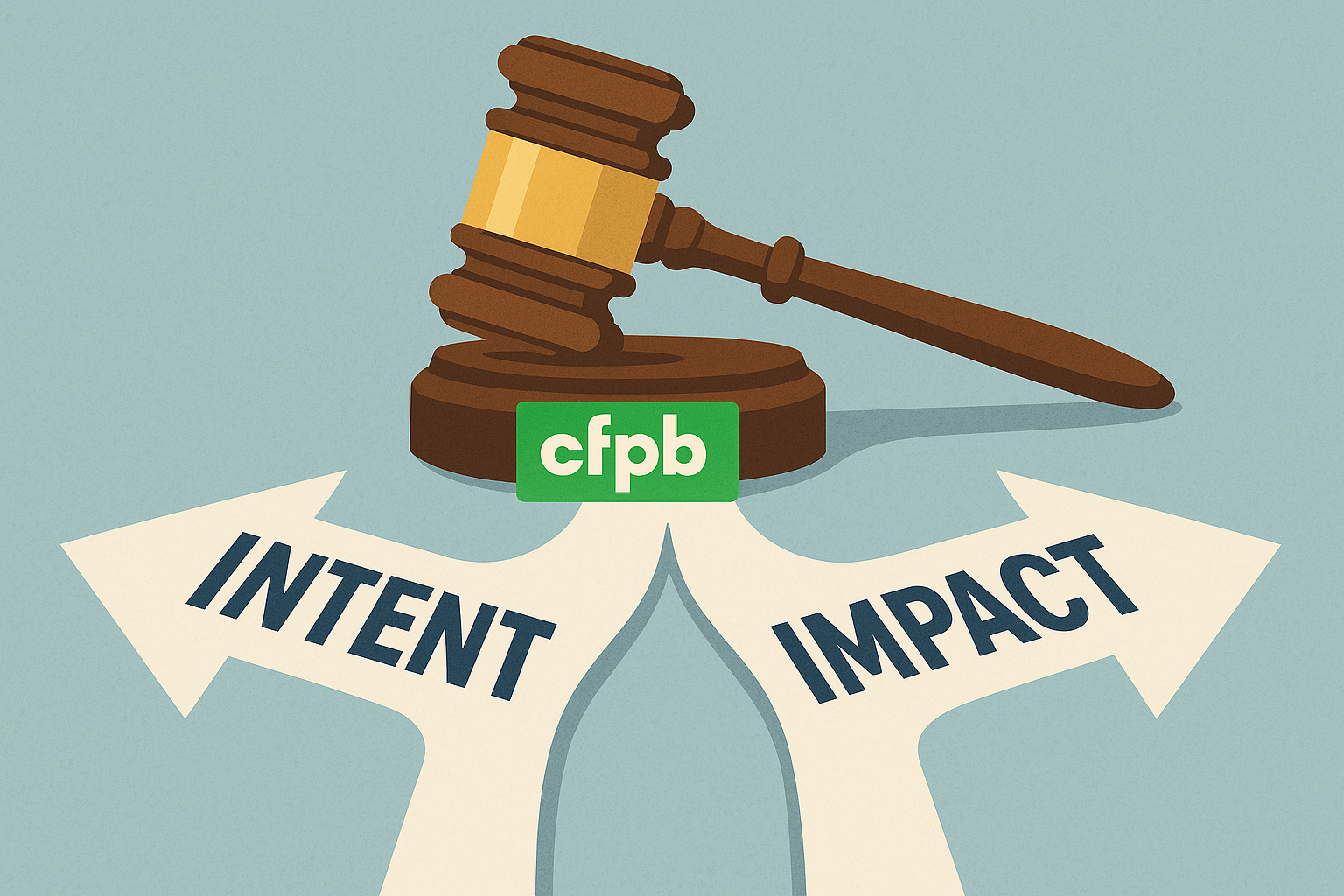
The Consumer Financial Protection Bureau (CFPB) has proposed a rule that would formally end the use of the “effects test” under the Equal Credit Opportunity Act (ECOA), effectively saying that ECOA does not authorize disparate impact claims. The proposed rule would remove language in Regulation B that has, for decades, opened the door for lenders to be held liable for policies that disproportionately affect protected groups—even if those policies are neutral on their face and not intended to discriminate. The CFPB is taking comments until December 15, 2025, and cited recent executive orders calling for an end to “illegal preferences and discrimination” and eliminating disparate-impact liability in federal enforcement.
I think this change is long overdue. The disparate impact standard makes it nearly impossible to create a truly “safe” rule in lending. It puts lenders and financial institutions in a position where everything is subject to interpretation and the outcome matters more than the intent. That’s not just unfair, it’s unsustainable. A lender can have zero intent to discriminate and follow well-established, sound underwriting practices, yet still face legal trouble if their policy affects one group more than another. To me, intent isn’t hard to prove. We prove intent every day in criminal courts across the country. Some rules will inevitably impact certain groups more than others, but if the rule is based on legitimate, non-discriminatory criteria, that should be the end of the discussion. Otherwise, you get absurd comparisons. Think about the NBA banning players from playing pro hockey because of injury risks. That rule could statistically affect more white athletes, but it has nothing to do with race. It’s a rule based on logic, not discrimination.
Access the proposed rule change in the Federal Register HERE.
How to Submit Comments
You may submit comments, identified by Docket No. CFPB-2025-0039 or RIN 3170-AB54, by any of the following methods:
-
Federal eRulemaking Portal: https://www.regulations.gov. Follow the instructions for submitting comments. A brief summary of this document will be available at https://www.regulations.gov/docket/CFPB-2025-0039.
-
Email: [email protected]. Include Docket No. CFPB-2025-0039 or RIN 3170-AB54 in the subject line.
-
Mail/Hand Delivery/Courier:
Comment Intake—2025 NPRM ECOA
c/o Legal Division Docket Manager
Consumer Financial Protection Bureau
1700 G Street NW, Washington, DC 20552
Instructions: The CFPB encourages early submission. Comments should include the agency name and docket number or RIN. Due to potential delays in mail, electronic submission is preferred. All comments will be made public and should not contain sensitive or proprietary information.
